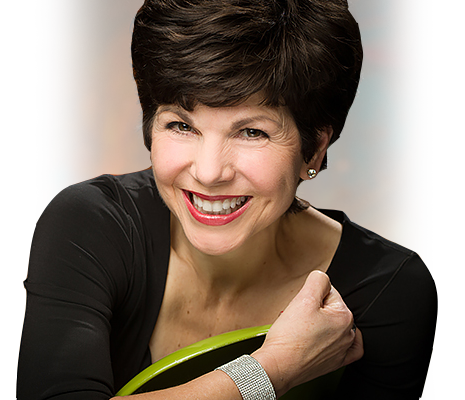I’ll never forget the time in my early 20’s when I went on a journey of career exploration and fully leveraged the power of informational interviewing.
I had been working at Levi Strauss & Co in the advertising department. I wasn’t quite sure that was what I wanted to do for the rest of my work life. I came up with 5 different career paths that I might enjoy. Since I wasn’t sure what these different jobs might entail or require (or which I would like best), I elected to undertake a series of informational interviews with people actually doing those jobs.
Informational interviewing was the BEST thing I could have done at the time, and I had a blast doing it. I connected with great new people and learned what I needed to know to help me make a very important career decision. As a result of what I learned, I broadened my career path and took a job in brand management with Maybelline Cosmetics in Memphis, TN. There I met CEO Gary Mulloy who became a key figure in the next 20 years of my career.
Informational interviewing quite literally changed the course of my life.
 What is an informational interview?
What is an informational interview?
An informational interview is not a job interview. Rather, it’s an interview with an individual working in a career you would like to learn more about.
You’re attempting to discover what the person’s job is like, what they do, what responsibilities they have, and what it’s like to work in their job at their company.
An informational interview involves talking with people who are currently working in the field to gain a better understanding of an occupation or industry — and to build a network of contacts in that field.
While the pressure is significantly less in an informational interview than a formal interview, you still must bring your “A” game.
- Check out this well-written article about the 3 Rules for Effectively Informational Interviewing by Lisa Adams, founder of Fresh Air Careers.
How to get an informational interview
Chris Harvey is a retired Lieutenant Colonel of the US Army who successfully launched her civilian career as project manager for a UTC company. She and I met at the 2009 Business Women’s Conference in Hartford, CT and quickly became networking buddies. When she landed her new job, I wanted to interview her for my next book covering the role of business networking in the job search process.
She told me that “networking can get you informational interviews.” That peaked my interest and I probed more. Chris shared with me her approach to getting quality informational interviews. Here are a few of her gems and jewels:
- Don’t cold call, but rather leverage a personal connection to get you an informational interview with someone currently in a job or company that you are curious about.
- Disarm them. Let them know that your motivation is simply to learn and to gain new information. You are not asking for a job.
- Ask the person if they would be willing to have a cup of coffee with you or a telephone call;
- When you meet up, you drive the conversation.
- Ask questions like a journalist. Take notes. Demonstrate that what they are sharing with you is important to you.
- Listen more than talk. Remember you are there to gather information, not to sell yourself.
- Ask them if they would recommend anyone else you should speak to regarding this career path.
- And, of course, thank them (in person at the meeting and in writing afterward).
Chris also reminded me that every informational interview is potentially a real interview, so it is best to be prepared. But keep your motivation and agenda in mind to ensure that you walk away with more information that you came in with.
With whom should you have an informational interview?
Since you are in the informational gathering stage, it is best to meet with people actually doing the jobs. Don’t go straight to the top and request an informational interview with the President/CEO. You are not ready for that. You don’t want to blow a major opportunity with a key decision maker.
You want to find someone who is actually doing the work that you might like to do. They are less likely to be in the hiring position, but that doesn’t matter. You are just gathering information and making new connections.
- Warning: avoid interviewing with people who are totally unhappy in their jobs. They are less likely to give you quality, balanced information that you are seeking in your informational interviews.
What kind of questions should you ask?
This is where you must come prepared. Again, think like a journalist. What questions would you ask if you had to write a column/story following your meeting. Know what you want to learn.
- I found this article on the About.com web site that lists 40 open-ended questions that you could ask. http://jobsearch.about.com/od/infointerviews/a/infointervquest.htm
Business librarian extraordinaire Jennifer Keohane emphasized the importance of asking the type questions that you can’t find the answers to on the Internet.
“Don’t waste your questions with stuff you can easily find on line. Rather, use this opportunity to get a glimpse into the future. Ask crystal ball kind of questions such as What are the trends? What’s direction are things going in? How is your role changing? “ Informational interviewing is a great opportunity to get the off-the-record kind of information. A flavor of the company culture, etc.” – Jennifer Keohane
What to bring to your informational interview
Your best professional self, a notepad and pen, a long list of questions that you really want to know the answers to and your business card with full contact information.
You can have your updated resume with you, but do not present your resume UNLESS they ask for it. Remember, this is not a job interview; this is an informational interview.
You should also be prepared to quickly summarize who you are and what you are looking for. No clever elevator pitches – just a top line of where you are and what you might want to do in the future.
Please don’t tell your whole life story and don’t dominate the conversation with your career success stories. Again, you are here to gain useful information from them, not to sell yourself.
 Remember to ask the Ultimate Question
Remember to ask the Ultimate Question
Nancy Anton is the author of the soon-to-be-released book “Why You Really Didn’t Get That Job.” She recently told me a moving story that I felt was important to include when speaking about networking and informational interviewing.
A few years back Nancy was exploring new career possibilities. As part of her journey, Nancy was networking her heart out . She also had been doing tons of informational interviewing in order to learn more about different companies and career paths she might want to consider.
At the end of one informational interview, Nancy asked the all important question:
“What can I do for you?”
Nancy told him that she was on the “information highway” and had been meeting with tons of people recently. If there was anything she could look out for or help out with, she would be willing to do so. She was very grateful for his time and openness in sharing his experience, knowledge and perspective during their informational interview.
To her surprise the gentleman told her that his son had recently had a near-death experience and was saved by a man who had been a stranger at the time. He asked Nancy if she would network with this man to help him find a job. With delight, Nancy said “yes.” They exchanged telephone numbers and emails and arranged for a networking introduction.
Lastly, stay in touch
You may know I am a stickler for networking follow up. Everyone you meet can add value to your circle of influence if you make the effort to stay connected by staying in touch periodically. This key message was reinforced by business librarian Jennifer Keohane who shared her frustration with me when she grants informational interviews to others.
“When you spend an hour with someone in an informational interview, sharing what you know, it would be nice if they let you know it goes for them. Otherwise, you start to question whether or not you’ve been helpful at all. Should you continue to give informational interviews or not?”
– Jennifer Keohane
Put yourself in the advisory role. They too want to be helpful and know that they’ve been helpful. Let them know both by your thanks and also with your updates. Jennifer finds that LinkedIn is particularly useful for these kinds of periodic updates (note: direct messages to these advisors are best, vs. networking activity updates on your LinkedIn profile)
Practice both sides
You will need experience in both asking for and granting informational interviews over the course of your professional life. By doing so, you will experience the true value of the informational interview. We can all help each other by sharing the good, bad and ugly of our chosen career paths and current jobs.
The next time you get a request to do an informational interview, say YES. And I encourage you to reach out to someone this week to request an informational interview process. We all must stay vigilant about career management. You never know when you’ll need to or want to re-invent your career. Informational interviewing can play an important role in your future career direction. Make time for it.

